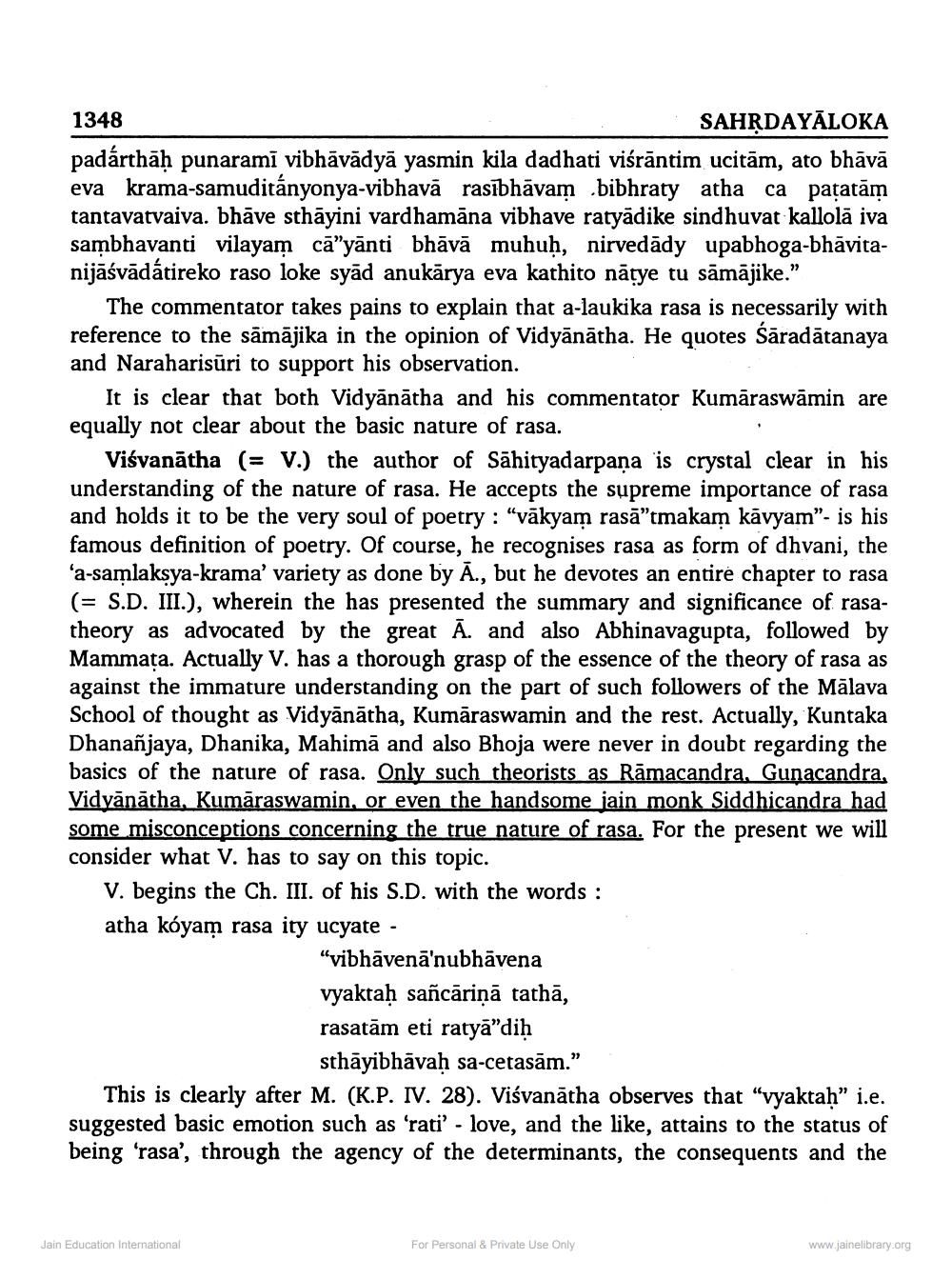________________
1348
SAHṚDAYALOKA
padárthāḥ punaramī vibhāvādyā yasmin kila dadhati viśrantim ucitām, ato bhāvā eva krama-samuditányonya-vibhava rasībhāvam bibhraty atha ca paṭatām tantavatvaiva. bhāve sthāyini vardhamana vibhave ratyādike sindhuvat kallolā iva sambhavanti vilayam ca"yanti bhāvā muhuḥ, nirvedādy upabhoga-bhāvitanijāśvādátireko raso loke syād anukārya eva kathito natye tu sāmājike."
The commentator takes pains to explain that a-laukika rasa is necessarily with reference to the sāmājika in the opinion of Vidyanatha. He quotes Śāradātanaya and Naraharisūri to support his observation.
It is clear that both Vidyanatha and his commentator Kumaraswāmin are equally not clear about the basic nature of rasa.
Viśvanatha (= V.) the author of Sahityadarpana is crystal clear in his understanding of the nature of rasa. He accepts the supreme importance of rasa and holds it to be the very soul of poetry: "vākyam rasā❞tmakam kāvyam"- is his famous definition of poetry. Of course, he recognises rasa as form of dhvani, the 'a-samlaksya-krama' variety as done by A., but he devotes an entire chapter to rasa (= S.D. III.), wherein the has presented the summary and significance of rasatheory as advocated by the great A. and also Abhinavagupta, followed by Mammata. Actually V. has a thorough grasp of the essence of the theory of rasa as against the immature understanding on the part of such followers of the Malava School of thought as Vidyānātha, Kumāraswamin and the rest. Actually, Kuntaka Dhananjaya, Dhanika, Mahimā and also Bhoja were never in doubt regarding the basics of the nature of rasa. Only such theorists as Rāmacandra, Gunacandra, Vidyanatha, Kumāraswamin, or even the handsome jain monk Siddhicandra had some misconceptions concerning the true nature of rasa. For the present we will consider what V. has to say on this topic.
V. begins the Ch. III. of his S.D. with the words :
atha kóyam rasa ity ucyate -
"vibhāvena'nubhāvena
vyaktaḥ sañcāriņā tathā, rasatām eti ratyā"diḥ
sthāyibhavaḥ sa-cetasām.'
This is clearly after M. (K.P. IV. 28). Viśvanatha observes that "vyaktaḥ" i.e. suggested basic emotion such as 'rati' - love, and the like, attains to the status of being 'rasa', through the agency of the determinants, the consequents and the
Jain Education International
"
For Personal & Private Use Only
www.jainelibrary.org




